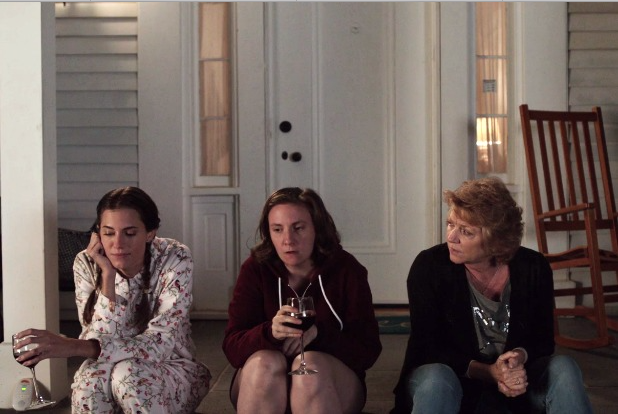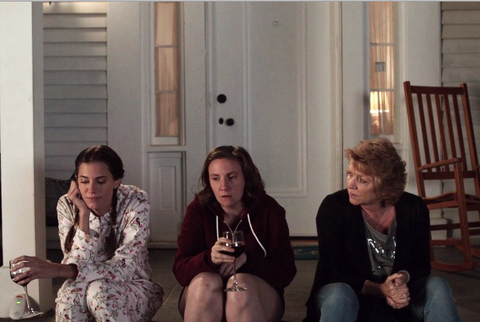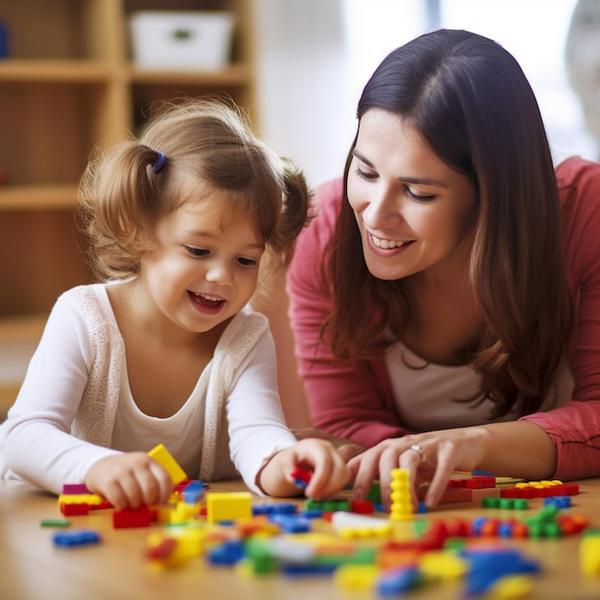
Breastfeeding Gets Real on 'Girls'
Erin Burt

Warning: Series-finale spoilers ahead.
Girls and its star Lena Dunham have endured criticism from the start of the 6-season HBO series, mostly for the lack of realism portrayed as the story arc followed five 20-somethings trying to make it in NYC. As someone who grew up while Sex and City was still on HBO, I find this claim a little unbelievable. At least the women on Girls had roommates, went through some financial hardships, and lived, for the most part, in unenviable apartments.
I did watch the whole series, drawn in mainly by Hannah’s completely unlikeable character, because I identified with her more than I would like to. I was a lot like Hannah before I became a mom: no boundaries, controlling, obsessed with how people saw me but unwilling to accept criticism, and always needing to be bailed out of something. Motherhood is really hard on that type of personality.
So when Hannah revealed she was pregnant, my heart sank. Although I was armed with more support than Hannah, I fumbled through breastfeeding and really felt like I was failing at motherhood from about day 3 on. My baby cried endlessly and seemed to want to eat way more than the 4-hour intervals recommended in Babywise that my new-mom friends all raved about.
I battled flat nipples that became cracked and bleeding nipples and terrible advice. My pediatrician yanked my baby from my arms at our two-week appointment, and gave her formula that she greedily gulped down. When I burst into tears, my ped asked, “Why are you crying? Your baby is being fed!”
That experience primed me for Girls’ series finale, centered around Hannah having moved to upstate New York with her baby and starting her first real job. Perennial bestie Marnie tags along, determined to win the title of BFF “of all time” by helping Hannah with her newborn, Grover. The episode is predictably filled with failed attempts at breastfeeding, uncomfortable pumping, and crying. Throughout the episode Hannah wants to quit trying, but keeps at it at Marnie’s insistence that breastfeeding is far superior for the baby. Hannah’s mom and Marnie also have a showdown of sorts over what’s best for the baby, notably, without Hannah even in the room. In a final scene, Hannah goes out walking and when she returns, she learns the baby is sound asleep because Marnie and Hannah’s mom gave him some formula.
You know, just like real life with a newborn.
Hilary Lewis of the Hollywood Reporter asked producers Jenni Konner and Lena Dunham what they were trying to get across by featuring the breastfeeding struggle as a central part of the finale. Konner responded, “That was like this weird pressure that mothers are put under, like this idea that if you can't breastfeed, you're not doing something properly, or if you choose not to. And so we were interested in just telling that conversation. I think we definitely show both sides of it. I don't feel that we're saying, ‘Now she's a good mom because she can breastfeed,’ or something like that. It's much more the struggle. It's such a fundamental thing that would make you feel like you're doing it wrong.”
Dunham, when pressed on the statement they were making about breastfeeding, said, “A couple people who have seen it, like our editor, were like, ‘Is this some kind of a statement on Should women breastfeed? Should they not breastfeed?' And we were like, ‘We're the last f—ing people who have a f—ing opinion on what you should do with your body. Anything that makes your day easier, as long as you're not feeding your baby crack in milk, is really good by us.’”
So much of this rang true to my experience as a FTM, such as family members arguing over what was best without even caring what I thought, the crushing weight of those expectations, and my inability to rise to meet them. Agonizing over choices for which one thing is as awful as the other. I sobbed into my husband’s arms once that my baby didn’t like me, because that’s how I viewed the world: at it’s center, everything that exists a ripple of me. It's a terrible way to live.
How thankful I was that this baby came along and showed me otherwise. I got into therapy within the first few years of having my first, and by my second child was able to realize that babies don’t like or dislike, they just are. They are hungry, tired, wet, uncomfortable, cranky. They have no opinions. They are all at once the most demanding individuals on the planet and the easiest to please. All they require is all you have.
Honestly, so much of the episode wasn't even about breastfeeding. It just happened to be there. That's really what is missing in many shows depicting motherhood. Breastfeeding isn't the center of any mother's day, it's just what happens during most of it while they are trying to get other stuff done.
What I loved about this finale was how, once Hannah was completely spent, exhausted, and out of ideas--not just about breastfeeding, but about life and motherhood as well--she tried again. One more time. And, free of expectation and even the consequence of failure, Grover finally breastfed.
Isn’t that just how it goes?
Erin Burt is a freelance writer and mother of three girls. She lives and writes in Oklahoma City






